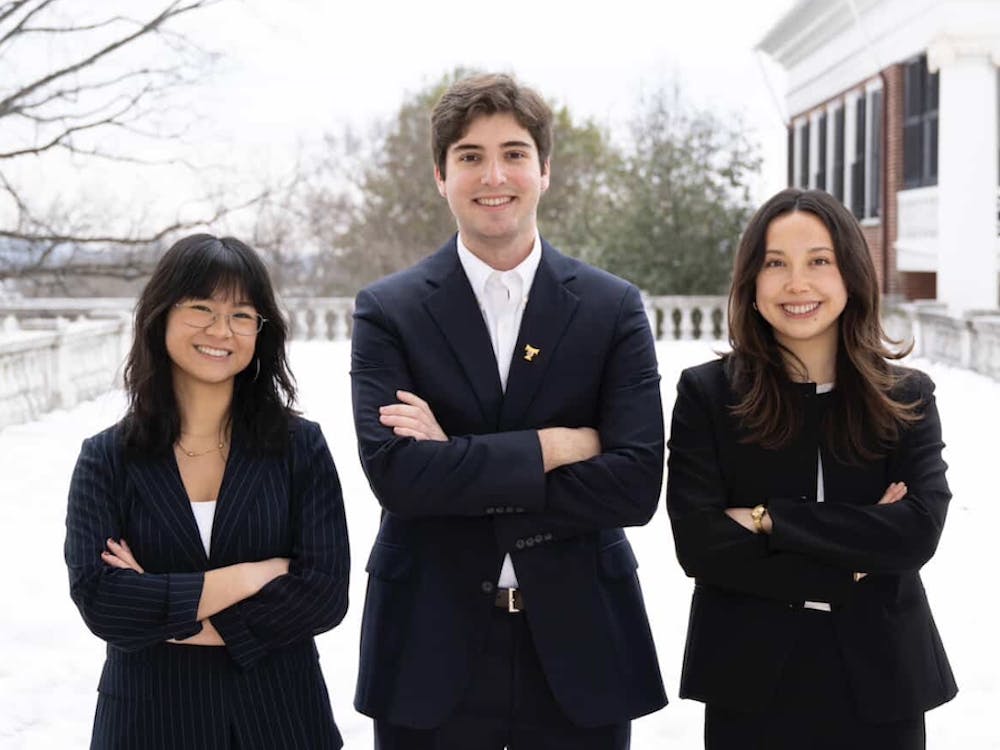Mark, a fourth-year Engineering student, had a common post-party craving earlier this semester: a sandwich from Littejohn's. Unlike many of his peers, however, he opted to drive rather than walk to the Corner for his late-night snack. But before his craving was satisfied, he found himself pulled over and being tested for alcohol consumption.
"They told me I had to get out of the car because they smelled alcohol, and then I had to do three tests," Mark recalled. "I had to walk the line, spin around and come back; I had to close my eyes and touch my nose; and stand on one leg and count up to 20 and then back down to zero, I think."
His passenger was fourth-year College student Clinton, who also was intoxicated. Because Clinton was convicted of drunk driving in his Pennsylvania hometown over the summer, he faced arrest if an officer found he had used drugs or alcohol, a violation of the terms of his probation.
"It was around 2 a.m. after last call, so people were streaming out of bars ... and the entire school was sitting there watching this happen and having a grand old time of it, while I sat in the car and wondered whether I was going to go to jail or Mark was going to go to jail," Clinton said.
Although Clinton was allowed to go home without being charged, Mark spent the night in jail, as Clinton had done during the summer. But their brief jail stints were only the beginning of their DUI-related experiences.
According to Virginia law, anyone caught driving while intoxicated -- legally set as a Blood Alcohol Content of .08 -- may be subject to a minimum $250 fine and a one year driver's license suspension. A BAC between .15 and .20 results in an additional mandatory five days in jail, while a BAC above .20 results in a minimum 10-day sentence. Subsequent offenses carry harsher penalties.
Mark, who was a first-time offender, was sentenced to two years of probation and one year with a suspended license, and will have to pay about $1,100 in fines, court fees and alcohol class costs. Another drunk driving conviction in the next five years will earn him a minimum fine of $500, a three-year driver's license suspension and between one and 12 months of jail time.
According to Mark and Clinton, the threat of jail time is the greatest deterrent against driving drunk again, and their own time spent in jail has served as a warning to their close friends.
"All my friends have gotten kind of a wakeup call, too -- at least a couple close friends around Grounds," Mark said. "One of my friends used to drive drunk all the time, and he said he doesn't do it anymore."
What many students do not realize, however, is that the fines and jail time are only some of the possible legal and financial ramifications of driving under the influence.
According to Commerce Prof. John Wheeler, who teaches two law courses to undergraduates, many students incorrectly believe drunk driving convictions are like other traffic offenses, rather than being criminal. Students with criminal records must explain them "the rest of your life," which often includes applying to graduate schools and for jobs.
Additionally, legal repercussions are not limited to criminal penalties. Students who cause property damage or personal injury while driving under the influence may be subject to civil charges.
"On the civil side, it's bad for a number of reasons, one being that punitive damages would typically be awarded, which even in Virginia is $350,000 at the maximum," Wheeler said. "Moreover [punitive damages resulting from personal injury are] not dischargeable in either Chapter 7 or Chapter 13 [bankruptcy], so you have no way whatsoever of getting out of any of this legally as long as you're alive."
Furthermore, civil charges may be pressed against individuals who are not legally intoxicated.
"The famous blood alcohol content .08 is only the threshold from the criminal side, making it criminal to do it," Wheeler explained. "But you can be liable on the civil side for driving substantially under that. I don't know what level; the jury would have to decide it's unreasonable, but a jury could find it's unreasonable at .06, possibly .04, I guess even lower."
In most cases, however, police officers are alerted to drunk driving when perpetrators commit routine traffic violations, according to University Police Sgt. Melissa Fielding. For Mark, making a forbidden right on red onto University Avenue was what caught a police officer's attention, while Clinton's mistake was going the wrong direction down a one-way street.
Fielding said the University Police Department made 38 total DUI arrests during the 2004-2005 academic year, up from 21 in 2003-2004, but she was uncertain what portion of the total arrests were students. Also, it is unknown how many students drink and drive without being caught.
Editor's Note: names have been changed at the request of the students.






